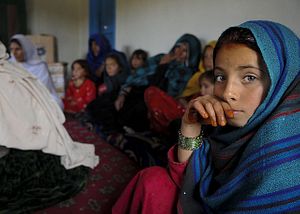The third round of quadrilateral meetings between Afghanistan, Pakistan, the U.S. and China took place in Islamabad on February 6. The participants discussed drawing up a roadmap and worked on steps to bring key Taliban figures into the negotiations. According to an Afghan Foreign Ministry statement, the first direct meeting among Afghan government and Taliban leaders will take place at the end of the month. In the meantime, the Taliban’s latest position in Doha has highlighted its criteria for negotiating with the Afghan government: amending the Afghan constitution, removing Taliban leaders from the UN blacklist, releasing Taliban prisoners, and accepting the Taliban office in Qatar as an official address.
U.S. and Afghan officials are desperate to find an arrangement that will deliver peace for Afghanistan. The parties in the quadrilateral meetings understand that without a peace deal with Taliban, there will be more violence and attacks in the spring. More importantly from an Afghan perspective, however, peace with the Taliban and a political settlement should not come at the cost of the democracy and human rights that Afghans have gained over the past decade.
The Afghan and U.S. government have spent years trying to bring the Taliban to the table. Despite all the efforts, however, the puzzle has still not been solved. The key lies with Pakistan, the godfather of the Taliban that has provided sanctuary to the hardline group.
Observers of these quadrilateral meetings have been hopeful that Chinese engagement in the talks could provide the breakthrough. China could eventually pressure Pakistan into pushing the Taliban leadership into negotiations. And China’s massive investment in Pakistan and the importance of regional economic cooperation for energy and transit would persuade Beijing to be more serious about cooperating with Afghans and Americans in building peace and security in Afghanistan.
Safeguarding Rights
Afghanistan is one of the youngest countries in the world: More than 65 percent of its people are below the age of 25. Poverty is still a major challenge. The Karzai administration failed to reestablish a functional system of government, and systematic corruption cost American and European taxpayers billions of dollars. Afghanistan was listed as the third most corrupt country in the world in the 2015 International Transparency Index.
Notwithstanding these shortcomings in good governance and rule of law, the Afghan constitution itself is one of the most significant achievements of the post-Taliban era. Equality and liberty are now the constitutional basis for safeguarding freedom of speech, gender equality, women’s rights, minorities’ rights, and democratic values. These must not be threatened by any deal that is made with the Taliban.
Afghanistan wants peace and prosperity, and a way to end the conflict. Efforts to bring peace and stability buy time for the Afghan government to do what has to be done to promote good governance and the rule of law, and to regain the trust of ordinary Afghans. It should be clear to the international community that Afghans would agree to an inclusive peace and that notwithstanding the past they are willing to start a political discourse with the Taliban. But this should not mean undermining the Afghan constitution or its guarantees of democracy and the rights of each Afghan citizen.
Maisam Wahidi is a political science researcher from Afghanistan. Follow him at @maisamwahidi

































